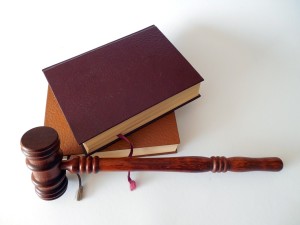TWU Law School: Freedom from Discrimination Over Freedom of Religion


In a controversial decision, the British Columbia Supreme Court has ruled in favour of Trinity Western University’s (TWU) plans to open a law school. The decision has overturned a previous decision by the Law Society of B.C. that removed their support for the proposed institution. There has been controversy surrounding TWU’s proposed law school since it became clear the University makes students sign a covenant that states they will uphold traditional biblical morals. Among many things, this covenant makes students agree that they will abstain from any “sexual intimacy that violates the sacredness of marriage between a man and a woman.” Many people are upset at the thought that a law school could come into effect that visibly does not support gay marriage.
In 2013, TWU received initial support from the Canadian Federation of Law Societies and the B.C. Government for their plans to build the law school. The Law Society of B.C. (LSBC) also gave their approval in April 2014. However, backlash from B.C. lawyers eventually led to a referendum in October 2014, where roughly 74 per cent of LSBC members participating in the vote voted against approving a TWU law school. As a result, LSBC withdrew their support.
In regards to the recent ruling, B.C. Supreme Court Chief Justice Christopher Hinkson criticized LSBC for – as he views it – treating TWU unfairly. He believes LSBC’s regulators, aptly called Benchers, neglected their responsibilities by calling the referendum on the proposed law school. He claims that the Benchers infringed on the University’s freedom of religion and, in his own words, “allowed the members the dictate.”
Hinkson wrote, “Even if I am wrong, and the Benchers had the authority to delegate to the members, I find that the decision was made without proper consideration and balancing of the charter rights at issue, and therefore cannot stand”.
Prior to the referendum, Hinkson believes the LSBC had done their responsibility by carefully reviewing the case before them and considering the constitutional rights involved. He went on further to write that “there is no basis upon which a conclusion would be drawn or any evidence from the Special General Meeting or the October Referendum proceedings that the LSBC’s membership considered, let alone balanced, the petitioners’ Charter rights against the competing right of the LGBTQ community.”

Similar controversies about the proposed law school have been taking place all over the country. Victoria, though initially supportive, withdrew support for TWU in December 2014. Both the Nova Scotia Barristers’ Society and the Law Society of Upper Canada refused to recognize any TWU law graduates. The Nova Scotia Supreme Court ended up ruling in favour of the University, but the Ontario Supreme Court ruled against it.
Supporters of the University are claiming that this is a human rights issue – it is infringing on the University as well as the potential students’ Charter-guaranteed right of freedom of religion. Some claim denying the law school may also violate freedoms of association, expression, and equality.
But what about the rights of the potential students it would be marginalizing if this law school came into reality?
The covenant may prohibit students from participating in a variety of behaviours – drugs and premarital sex, just to name a few – but there are clear parts of their covenant that discriminate against the LGBTQ community. Saying that students should not participate in a marriage that is not between a man and a woman is clearly stating TWU’s disapproval of gay marriage. This may not reflect the views of the entire student body at TWU, but this covenant represents the view of the institution and it effectively marginalizes homosexual individuals.
Canada became the fourth country in the world to legalize same-sex marriage on July 20, 2005. This meant that Canada recognized that everyone has a right to and that there is nothing wrong with marrying someone of the same-sex. The proposed law school wants to educate students in an environment that disagrees with this fundamentally found right upheld in Canada’s Constitution. It blatantly discriminates against people based on their sexual orientation. If a law school is allowed to educate potential defenders and interpreters of the Constitution in an environment that implies that the Constitution is wrong, what will happen to the rights we have fought to achieve for so long and hard?
Though the University may very well accept LGBTQ students for admissions, it does not mean they believe that these students should have the same right to marriage as heterosexual students. And that goes against something Canada has long upheld as a fundamental right for a person in order to pursue the life they want. Perhaps denying the law school is an interference with religious freedom, but I (and many others) believe that freedom from discrimination is a more fundamental right to uphold.
Denying this University a law school is not going to impede on a person’s everyday life, but promoting harmful, discriminatory beliefs regarding homosexuality will. The right to practice one’s religion should not infringe upon the rights of someone to live a life without the fear that their rights to a decent life will be impeded. There have been many devastating instances where religion has been used to rationalize laws that supported the discrimination of marginalized groups. The real question here is not merely whether TWU has a legal right to create a law school; it is about how far we are willing to go to accommodate controversial and even unconstitutional religious beliefs.
